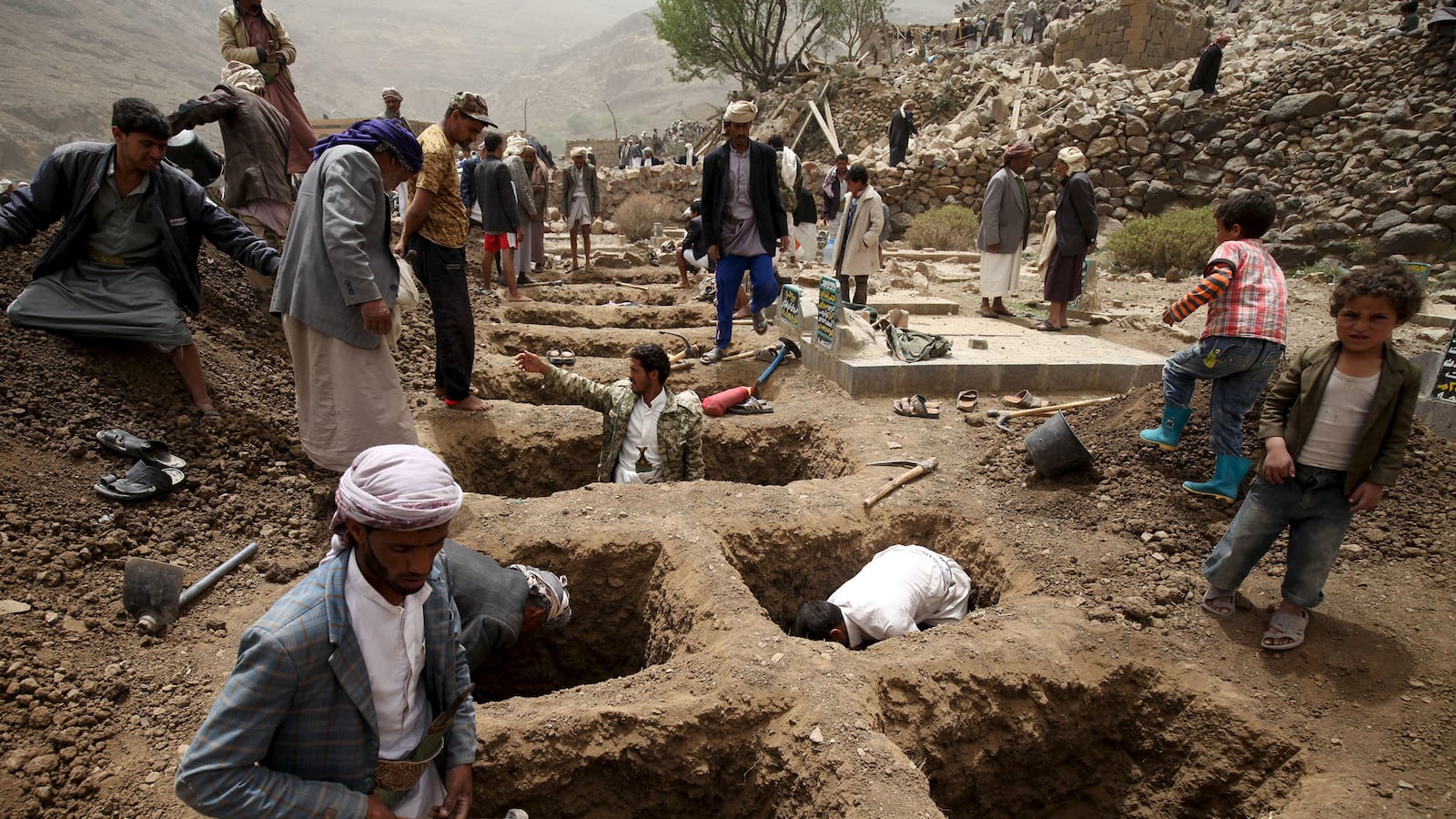For most Americans, Yemen’s civil war is the latest flashpoint in what seems like a remote, never-ending crisis in the Middle East. But for many in New York City’s Yemeni community, it’s a personal tragedy as they try to help family members, some of them American citizens, who are stranded in Yemen without any U.S. plan to evacuate them.
“Thousands of Yemeni Americans are stuck in Yemen, and no one in the U.S. is talking about it,” said Ibraham Qatabi, a legal worker at the Center for Constitutional Rights and Yemeni-American activist.
When New Yorkers buy a newspaper or a pack of gum at their corner bodega, Yemen’s problems often percolate unnoticed in the background. Many of the city’s bodegas—small stores that sell the essentials, not to be confused with delis, where a limited produce stock and pricier brand of junk food is stocked along with the cigarettes and beer—are owned by Yemeni Americans.
“Almost every single corner in New York has a Yemeni,” Qatabi said.
In early February the United States, along with several other countries, shuttered its embassy after Yemen’s Houthi rebels drove the country’s president, Abdu Rabu Mansour Hadi, a U.S. ally, out of the capital, Sana’a. Since the Houthis, who belong to the Shia sect of Islam, took up arms against government and security forces, Yemen’s civil war has drawn in other regional powers. While Iran is backing the Houthis, Saudi Arabia is supporting Yemen’s government forces and, as the head of a coalition of Arab states, bombing rebel forces in Yemen.
Although other countries, including China and India, have conducted large-scale evacuations of their citizens from Yemen, the U.S. has not done so, citing security concerns. “Designating an evacuation point for a large group of U.S. citizens has the potential to put those individuals’ safety and security at risk,” a State Department official said in a statement.
The State Department has no official numbers on American citizens in Yemen. “Estimates of U.S. citizens in particular countries can vary and are constantly changing,” the official said. “We do not want to publish figures that cannot be considered authoritative.”
Even getting such an estimate could be exceedingly difficult, given the country’s deteriorating security situation and the departures of U.S. government workers from in Yemen.
Not mentioned in the State Department’s official comments are likely security concerns about arrivals from Yemen, even U.S. citizens, fueled by the country’s entrenched terrorist networks. Al Qaeda’s largest and most powerful affiliate, known as al Qaeda in the Arabian Peninsula, has operated out of Yemen for years despite persistent targeting by U.S. forces.
Those concerns and State Department’s explanations do nothing to assuage Yemeni Americans in New York who told The Daily Beast they hope the U.S. will do more to get people out of Yemen.
Kamal, who like other Yemeni Americans quoted in this story asked that his last name not be used, works in a small store in Lower Manhattan. “I got my kids over there,” he said, his accent revealing more of his last two decades in Brooklyn than his first 14 years in Yemen. Kamal’s children are American citizens. They were born here and moved back to Yemen several years ago with their mother, Kamal’s wife. He began trying to bring them back to the States before the war started, but that process, slow at the best of times, hit a dead end after the fighting erupted.
“I’m an American citizen, I love this country, but they should do more to get them out of there,” he said.
Kamal’s co-worker Abraham was born in Brooklyn to Yemeni parents. He said his brother, who is also an American citizen, is stuck in the country trying to get out.
In Brooklyn, Father and Sons bodega on Cortelyou Road has been owned for the past decade by Talal’s father, Abdul. Talal, 23, has gone back and forth between New York and Yemen since he was a teenager, working the store’s register when he is in Brooklyn. He’s worried now about his wife and sons in Ibb, a city in southern Yemen.
In contested areas like Ibb, Talal said, gas prices have gotten too high for average people to afford, and food is becoming both more expensive and scarcer. Usually Talal sends a weekly check back to his family, but “right now it’s too hard to send them the money,” he said.
Last week the American-Arab Anti-Discrimination Committee and the Council on American-Islamic Relations sued the U.S. government in federal court on the grounds that it has abandoned American citizens in Yemen and offered no plan to rescue them.
“We want the United States to help us bring our kids,” Talal said. “We just want them to help us with passports and to bring them because we are scared for them.”





